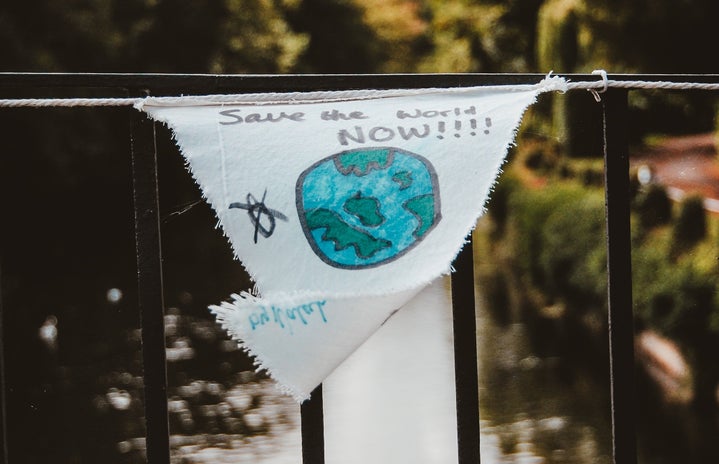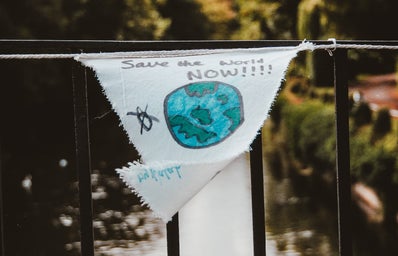Years ago, politicians debated whether or not global climate change existed. They argued back and forth for years, too focused on attempting to determine the legitimacy of climate change that they didn’t think about solutions. Unfortunately, all the talk about climate change in the political world made it seem like it was a political issue first and foremost, not a scientific fact, so climate change became something people had opinions on rather than being a true, universally accepted fact. The overwhelming majority of scientists agree that climate change is real and has been saying such for a long time, but there hasn’t been much in the way of laws to limit carbon emissions and try to revert these changes.
Global climate change is real, and its effects are being seen across the globe. In the last century, the sea level has risen around eight inches, and the rate of increase is rapidly rising. Our ocean is acidifying, leading to phenomena like coral bleaching, and the amount of intense rainfall events per year is also increasing. And, of course, the average global temperature is increasing. For more info and data, visit NASA’s page. (There’s quite a bit of it.) With the sheer amount of evidence and backing from the scientific community, climate change isn’t really a question anymore. Now, the question is, what do we do about it?
Spearheaded by Greta Thunberg, a sixteen-year-old Swedish student and activist, this strike movement is the amalgamation of a younger generation’s anger and fear. No longer is the goal to revert climate change- in many cases, it’s too late or too hard to do. All people can hope to do now is to pass legislation that will mitigate ecological effects in order to “avoid or limit some of the worst effects of climate change,” as NASA says. The problem is, that legislation hasn’t been passed in the past.
With the global climate summit coming up, these strikes hoped to bring more focus to the importance of passing such laws. Many of the older generations fail to see the importance of such laws, which is what prompted Millennials and Gen Z to rise up and strike from schools and jobs on Friday afternoons. With more than one hundred fifty countries involved, these strikes have spanned the globe each Friday leading up to the summit.
I went to one of those strikes. At the end of the summit week, on September 27th, 2019, I attended a climate strike organized by the Sunrise Movement, a rapidly growing activist group with hubs located across the US. The protest was set at Binn’s Park in Lancaster, PA, which is located right in front of the Lancaster County Government Center. My group arrived there early enough to see the local group setting the stage, hoisting up posters, and organizing everything in preparation for the beginning of the event. The theme colors were black and yellow, and people were encouraged to wear black for the funeral that took place during the protest.
The funeral was, in my opinion, a creative way to show the protesters’ remorse with the current state of the globe. One by one, protesters came to the podium to show the large crowd an object that symbolizes something they would lose due to climate changes. Leaves to represent the vibrant colors of the world, flowers for the beauty of nature, and more personal items entered the black casket. A melancholy, eerie song denoting the ominous future of the globe under its current conditions paired nicely with the solemn air of the event.
Following this, several speakers from other local environmental groups took to the stage to discuss the problems Lancaster is facing and their efforts to control or erase these problems all together. My favorite speech was by local councilman Ismail Smith Wade-El, who spoke eloquently and articulately about both the struggle for proper climate change legislation and Lancaster City’s successes thus far. These victories were just the beginning, Smith Wade-El declared, as more environmentally focused bills were being pushed every day.
The strike spanned for several hours, and though I did not stay for all of it, I greatly enjoyed what I saw. It’s heartwarming to see so many people fighting for what they believe in- from the young children with their homemade posters too much older folk declaring that “There is no Planet B,” everyone had a reason they were fighting for action. These strikes, organized by brave youth like Greta Thunberg and carried out across the world by local groups like Sunrise, all share one strong, demanding message: We’ve had enough, and if you don’t step up and take action, we will.
Each voice, when alone, is easily dismissed as the naïve opinion of an uneducated, inexperienced youth, but together- together, their voice is undeniably loud and urgent. Their voice screams one, singular thing: that the older generations must take action. Those in positions of power in the government, who have the power to draft, propose, and pass laws, must take it upon themselves to change the rules. It is up to us to make our opinions known to them so that they take action in our steeds. Contact your local City Council -write a letter, make a phone call, whatever- and make your opinion known. Together, we will take action and save our planet.



